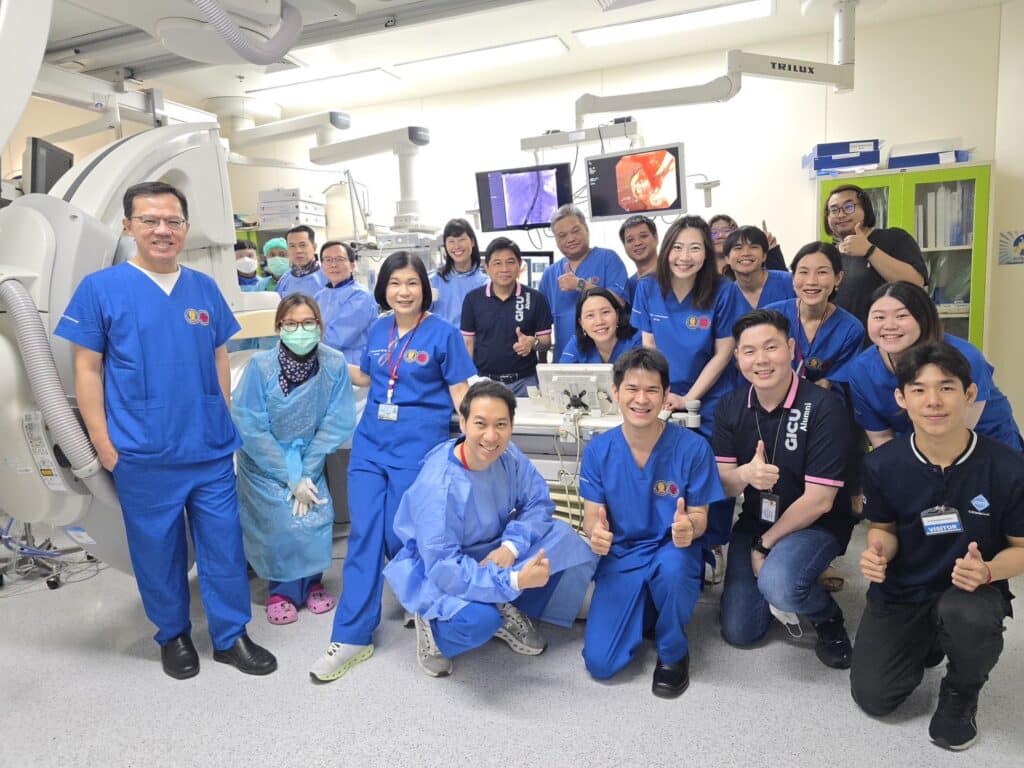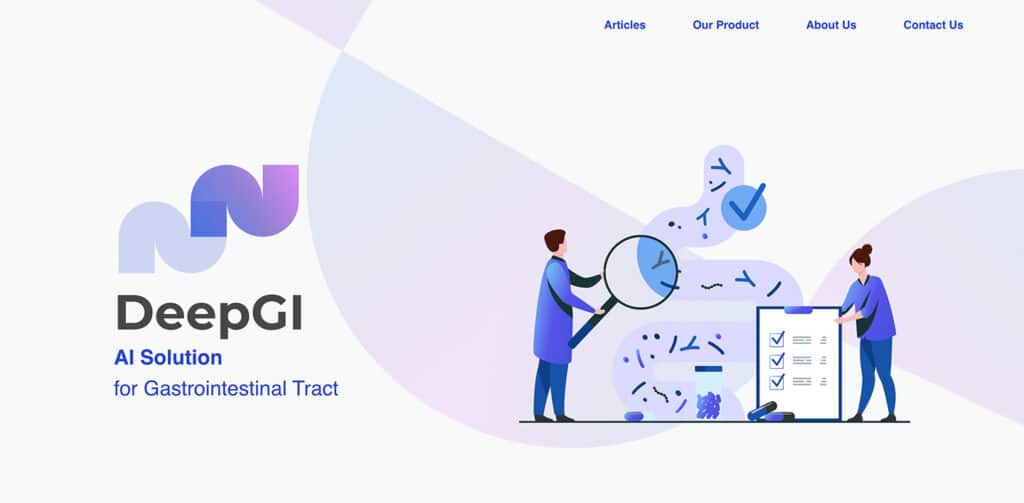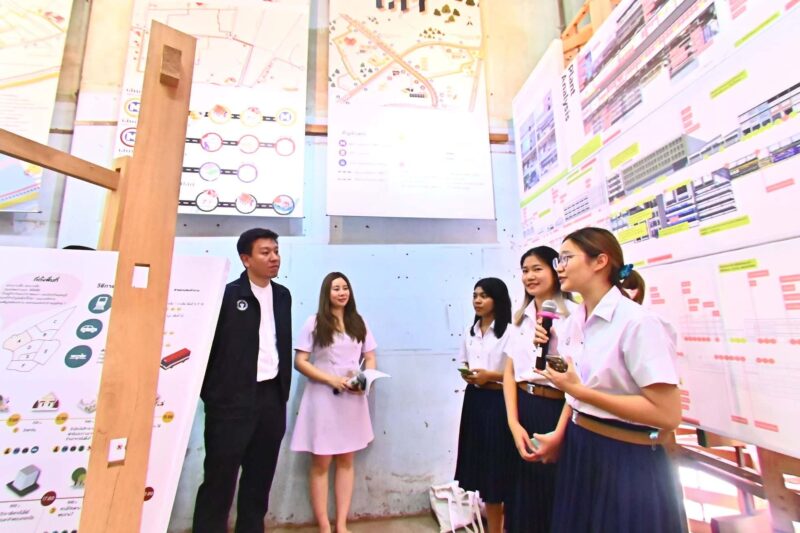DeepGI: Real-Time AI-Assisted Endoscopy for Colorectal Cancer Prevention
“Colorectal cancer is the world’s third most common cancer and the second leading cause of cancer-related deaths, with 1.9 million new cases and 900,000 deaths in 2020. In Thailand alone, more than 15,000 new cases occur annually. While colonoscopy is the gold standard for screening, its effectiveness is limited by physician expertise and workforce capacity. To address this, Chulalongkorn University, in collaboration with medical and industry partners, developed DeepGI, an AI-powered system for real-time polyp detection. Validated through randomized controlled trials across five hospitals and 1,200 patients, DeepGI improved adenoma detection rates by 17% and showed significant gains in proximal and advanced adenoma detection. Now at TRL-7 and deployed in hospitals, it provides an affordable, scalable solution that strengthens early cancer prevention. With ongoing extensions to gastric and bile duct abnormalities, DeepGI demonstrates the transformative role of AI in healthcare and exemplifies STEM innovation with far-reaching societal impact.”
Background and Necessity: Colorectal cancer is the world’s third most common cancer and the second leading cause of cancer-related deaths, with 1.9 million new cases and 900,000 deaths globally in 2020. In Thailand, it is also the third most prevalent cancer, with over 15,000 new cases annually and more than 5,400 deaths per year. Colonoscopy is the gold standard for screening, but its effectiveness depends heavily on physician expertise, with a miss rate of up to 22%. Limited numbers of endoscopists further exacerbate the challenge. Against this backdrop, DeepGI was developed as a collaborative innovation between Chulalongkorn University’s Faculty of Engineering and Faculty of Medicine, together with industry partners, to harness artificial intelligence for real-time polyp detection and cancer prevention. The primary objective is to enhance adenoma detection rates (ADR) and ultimately reduce preventable colorectal cancer cases.
Results and Wider Benefits: DeepGI has reached TRL-7, with multi-hospital testing across Thailand and randomized controlled trials involving over 1,200 patients at five centers. The project has produced numerous high-impact publications in both engineering and medical journals, highlighting its interdisciplinary strength and global visibility. Clinical validation showed significant gains: adenoma detection rate (ADR) rose by 17% (38%→55%), proximal ADR by 16% (23%→39%), and advanced ADR by 3.5% (6%→9.5%). The system also distinguished neoplastic from hyperplastic polyps with 79% accuracy and 85% sensitivity. These results confirm DeepGI’s capacity to improve diagnostic quality, reduce missed cancers, and save lives. Societal benefits include lower treatment costs through prevention, equitable support for physicians of varying expertise, and stronger public confidence in screening. Economically, DeepGI is more affordable than commercial alternatives, expanding access in resource-limited settings and positioning Thailand at the forefront of medical AI innovation.
Future Directions and Impact: DeepGI continues to advance AI research in gastrointestinal health, extending to gastroscopy for detecting gastric intestinal metaplasia (GIM) and cholangioscopy for bile duct abnormalities, both demonstrated through live broadcasts from Thailand to Korea at IDEN 2024 and 2025. The system is being adapted for multi-organ detection, further expanding its clinical applications. Beyond healthcare, DeepGI stands as a model of interdisciplinary STEM innovation, inspiring students and the wider public by demonstrating how AI and engineering can drive early cancer detection and timely treatment—ultimately saving lives and enhancing long-term quality of life.
Conclusion: DeepGI exemplifies STEM research with far-reaching public benefit. By addressing a major health burden with a real-world, clinically validated AI solution, it demonstrates how higher education research can save lives, reduce inequalities, and inspire the imagination of society.

By
- Faculty of Engineering, Chulalongkorn University
- Faculty of Medicine, Chulalongkorn University
Others
Thailand’s Medical Genetics Trailblazer
Research by Dr Vorasuk Shoterelersuk is leading to new diagnosis and treatment tools to ease suffering






